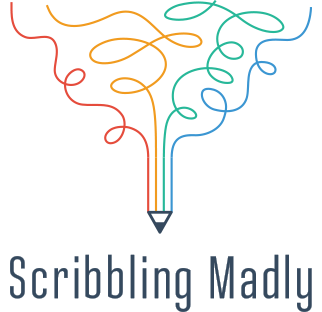Holiday special: The new freelancer’s guide to discussing your business with family
Here in the U.S., Thanksgiving is coming in hot. If you’re relatively new to freelance writing, two things are certain: Uncle Dwayne will crab about the government. And you'll field questions about your new business.
In my circle here in New England, traditional work is still the norm. Nurses work in hospitals. Tradesmen and women build buildings or fix important parts of them. Manufacturers produce machinery and parts. Mention of all these endeavors generates pictures in your mind; something you can relate to, point to or hold in your hand.
But when my people encounter discussions of work that doesn’t fit their idea of traditional work — like freelance writing — their eyebrows arch. They scramble for a foothold. They try to form a picture in their mind, but it doesn’t quite come together. Most patiently ask questions and try to understand. Others toss them in the “you’re not doing much” bin and go check on the game.
It’s this second group you should prepare for, new freelance writer.
Maybe it’s Grandpa starting small talk. Or Aunt May’s thinly veiled scorekeeping on how the cousins are measuring up.
Someone at some point will ask about what they delicately refer to as “your work situation.”
As though freelancing was a chronic condition. Or one of those unfortunate circumstances that hang over your head by no fault of your own. Like your partner’s passion for reenacting Civil War battle scenes.
Fear not, new freelancer. Here are four talking points designed to clarify — and bolster your confidence in —how you describe what you do.
They are:
Yes, freelancing is a thing
It’s a little more than words
No, you haven’t sold your soul
Ever hire a builder?
1. Freelancing is a thing
You could argue that freelancing is synonymous with self-employment. You could go uptown and call yourself a solopreneur or a consultant.
The point is, you’re your own boss. You eat what you kill (or what you forage). You’re responsible for everything, from landing work to collecting payment.
And that’s the way you want it.
Freelancing is NOT synonymous with “unemployed” or “still looking for the right opportunity.”
Full-time freelancing is itself a career choice. One far easier to make for those with a partner or ex through whom we access health insurance. And it’s the far safer choice when it comes to job security.
Think of the people you know who lost their job during the pandemic or were victims of buyouts, layoffs, and the like.
I'll take my chances out on my own.
2. It’s a little more than words
The mid-20th century sportswriter Red Smith (not Hemingway) said writing is easy. “You simply sit down at the typewriter, open your veins and bleed.” Too often, people stop listening or reading at “You simply sit down.” Maybe they think of writing as a God-given talent, like Kobe Bryant’s ability to play basketball.
(God gave Bryant the drive to hit the gym at 4 am to develop his “natural talent,” but that’s another story.)
Sure, a good freelance writer will know something about subject-verb agreement. Don't forget behavioral science. Project management. Messaging strategy. Storytelling. And the industries we're writing about.
3. No, you haven’t sold your soul
The world is a big and complex place. A lot of folks aren’t aware of the many different types of professional writing or what goes into writing well.
Some assume you’re the poet. You sit under a tree all day, pen in hand, waiting for the muse to whisper in your ear.
Others may figure you’re some kind of reporter. You spill food on your shirt, and, they assume, dig up lies about their preferred pol. (OK, reporters are known for spotted shirts. #eatingonthego) Still others may hear you say “sales copy” and assume that you’re conning money out of poor folk.
Don’t worry. None of these assumptions are likely to survive a few well-thought-out examples of what you really do. Like help the local cancer society collect more donations. Or help young parents understand what equipment their 8-year-old needs to get started in hockey. Or help community colleges reach out to the people they can help launch their dream businesses.
Note the repeated use of the word help. More than anything, freelance writers help others do business. And whatever that is, as long as you can sleep knowing that you're using your superpowers for good, you’re on the right track.
4. Ever hire a builder?
Anyone who has experienced a building project can understand how your freelance business works. You’re the contractor. But instead of hammers and saws, your tools are words and messages.
Your customer tells you what they need, you help them figure out what’s the best way to fill that need. They hire you for your skills and experience, and for your processes and frameworks that ensure your work is on target, on time and on budget.
When a builder completes a project, they don’t stick around, do they? (That would be weird.) Same when a freelancer works with a client. The project ends, and the freelancer moves on. Until another project comes up, that is.
Time for coffee and pie
So there you have ‘em. Four talking points to clarify to friends and family what you do and why it matters.
Some, like maybe Aunt May, never will get it. And you don’t need them to get it. Just keep doing your thing.
And when you gather with loved ones, don’t engage Uncle Dwayne on politics. But do go for that piece of pie.
After all, it is the holidays.
